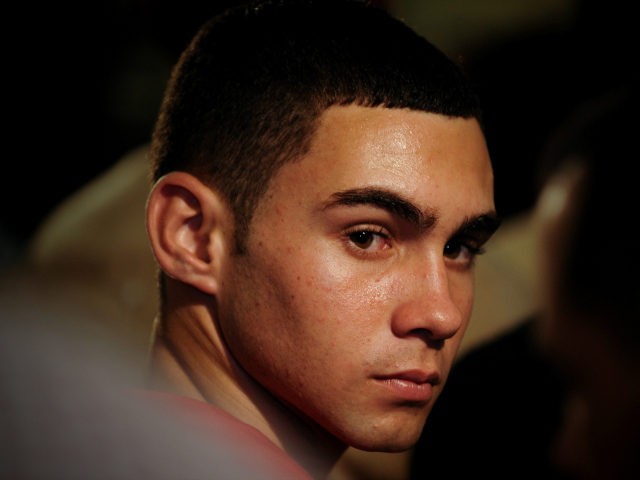Elián González, a former Cuban refugee famous for his abduction by the administration of President Bill Clinton and return to the island, resurfaced in communist state media this weekend praising Fidel Castro as a “beacon” in his life that he has dedicated “the immense majority” of his life to pleasing.
Castro was responsible for, among other human rights atrocities, the balsero (“rafter”) crisis of the 1990s that pushed tens of thousands of Cubans to flee the island towards the United States on rafts made of car parts and other improvised items. An unknown number died at sea, many presumed drowned and eaten by sharks in the Caribbean.
Among the dead was González’s mother, Elizabet Brotons, who attempted the journey with her son in 1999. González, then five, was rescued off the coast of Florida and brought to his cousins’ family in Florida. After a violent intervention by the Clinton administration that featured federal agents holding the boy and his family at gunpoint, the Clinton administration forcibly shipped González back to Cuba, despite the “wet foot/dry foot” policy that allowed Cuban nationals to stay in the United States if government officials did not spot them before they touched land.
Since his return, González has been a staple in communist propaganda, touted as a trophy for a battle won against the evil American empire.
Now 26, González revealed on Father’s Day that he is expecting a daughter. In recognition of June 28, the day he returned to Cuba, several communist propaganda outlets published interviews with him, documented by the Spain-based newspaper Diario de Cuba.
“Fidel is something like a beacon in my life,” González told the state propaganda outlet Cuba Debate. “Since I met him and we developed a friendship, the immense majority of my efforts have been focused on making my father and our Commander feel proud.”
González said that he feared meeting Castro when he was abducted to Cuba because his family in Miami had told him that Castro was a “devil” responsible for the killing, torture, and destruction of a people. As a six-year-old, he noted that his father’s praise for Castro was confusing in that context, but that it had ultimately won out, and he would not allow his unborn daughter to be exposed to the reality of the Castro regime.
“I will tell my daughter of the friend, brother, and father that I knew,” González said of Castro. “The person who did not stop before an injustice in his efforts until seeing it resolved. Without forgetting the support he gave my father and how he activated an entire nation with the idea of having a boy return to his country with his family.”
González also spoke of his daily life as a local celebrity in his hometown, Cárdenas, a small town in western Matanzas province.
“In our hometown … there are always places and commitments to go do, people who want to say hi, people with which I don’t see any other way of fulfilling my duty than saying hello to them,” González said. “It has been a burden to lose our intimacy, the joy of arriving somewhere and being anonymous. But becoming the family of the Cuban people and being with my father is the best reward for it all.”
In a separate interview with another propaganda outlet, Rebel Youth, González discussed the death of his mother fleeing the regime he now praised.
“I don’t resent her, though I think that, if she had not made the decision [to leave Cuba] she would be alive, with me,” González lamented. “I thank her … she bet on saving my life: she knew how to balance me on the raft, cover me with a blanket, and leave me a bottle of water. … the gesture of a heroic mother.”
While effusive, his praise for the regime this weekend paled in its enthusiasm to remarks he has made in the past, particularly when he began granting interviews to friendly outlets in the United States.
“I don’t practice any religion. I haven’t studied any religion. But if I did, of course, my god would be Fidel. To me, there’s no greater person,” González claimed in a 2017 interview with CNN, whose coverage of his saga in 2000 was heavily biased against the Cuban exile community of Miami. He elsewhere insisted that Castro would “never die,” although he just had less than a year before.
In that interview, González also hinted at the enormous trauma of his experience, not just with fame.
“I have to make my father proud, the Cuban people, the American people, Fidel, and the revolution which brought me home. That’s the psychological burden from that whole process,” he said at the time.
In 2015, 15 years after his short time in the free world, González expressed interest in visiting America again.
“Perhaps one day we could pay a visit to the United States. I could personally thank those people who helped us, who were there by our side. Because we’re so grateful for what they did,” he told ABC News.

COMMENTS
Please let us know if you're having issues with commenting.